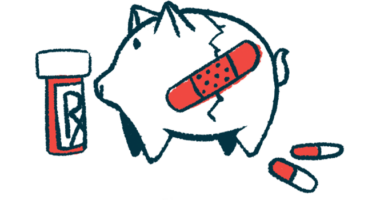Why immunocompromised patients require special precautions
Having PNH means paying attention when others are under the weather

In everyday conversations with family and friends, I’ll sometimes hear someone comment that a person they know has either strep throat or the flu. This immediately puts me in a defensive mode. My brain is flooded with questions aimed at protecting my safety: Who is sick? Have you been around them recently? Are you feeling sick?
I get nervous when I hear that someone is ill because I’m immunocompromised due to a rare blood disorder called paroxysmal nocturnal hemoglobinuria (PNH). Getting sick is never a simple thing for me. The unpredictability of PNH comes into play with any type of illness due to how my body responds. A typical stomach virus, for example, is what triggered a hemolytic episode that led to my diagnosis.
Getting sick is very anxiety-inducing for me because of my previous medical experiences. Trying to treat an illness apart from PNH with doctors who aren’t my hematologist is a process. The following steps are how I deal with it.
Step one
First I must determine if the symptoms I’m experiencing might be related to PNH or something else, especially since the common symptoms of headaches and fatigue that I often experience could be attributed to so many things.
Step two
I must find the right doctor to treat me and describe to them what PNH is. This usually entails repeatedly explaining why they shouldn’t be concerned about my blood levels (such as my hemoglobin), because it is my “normal,” even though they aren’t in the normal ranges.
Step three
Confirm that a possible course of treatment is safe with PNH by talking with both the treating doctor and my hematologist.
Step four
Hope and pray for no breakthrough hemolysis — the red blood cell destruction that is the hallmark of PNH — or hospitalizations while I’m recovering.
Being sick is a terrible feeling for everyone, so I don’t mean to downplay the experiences of a normally healthy person, but being sick as an immunocompromised patient is serious. Things can escalate quickly and unexpectedly.
I find it incredibly frustrating when people downplay their ailments — such as a sore throat or headache — in order to participate in social gatherings with me. Instead, I would appreciate knowing these things so I can avoid close proximity or personal contact, such as when sharing a hug.
Greetings with hugs and kisses are difficult to navigate because I don’t know who is feeling healthy or not, or who may have been exposed to something they haven’t developed symptoms for yet. During the COVID-19 pandemic, when physical greetings were put on hold, it was significantly easier to avoid close contact with others. But hugging is more accepted again, and I feel awkward trying to avoid it.
The polite way I found to avoid physical contact is by waving from a distance and saying, “Hi! I’ll give hugs and kisses from here!” That wording has generated positive responses while setting a safe boundary.
At times, I also feel burdened because my loved ones must avoid getting sick as well. They know that if they catch an illness, they could potentially bring it home to me. My family members have canceled plans to keep me safe when they found out someone in the group they were meeting wasn’t feeling well. I appreciate all the precautions they take on my behalf.
It wouldn’t be realistic to say that I avoid getting sick at all costs, because I don’t want to live in a bubble or stay at home all the time. Part of living is taking a risk that I might be exposed to something in order to make memories and have fun. But taking that risk means I’m doing what I can to control what I can, such as by thoroughly washing my hands, using hand sanitizer, and avoiding physical greetings and sharing food or drinks.
Note: PNH News is strictly a news and information website about the disease. It does not provide medical advice, diagnosis, or treatment. This content is not intended to be a substitute for professional medical advice, diagnosis, or treatment. Always seek the advice of your physician or other qualified health provider with any questions you may have regarding a medical condition. Never disregard professional medical advice or delay in seeking it because of something you have read on this website. The opinions expressed in this column are not those of PNH News or its parent company, Bionews, and are intended to spark discussion about issues pertaining to paroxysmal nocturnal hemoglobinuria.








